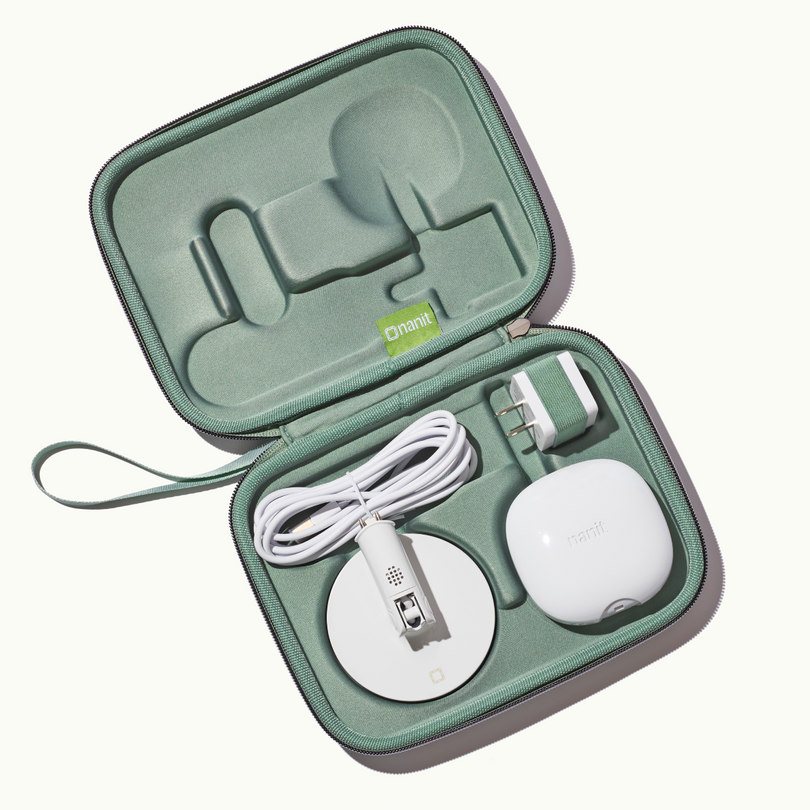18 Month Old Nap Schedule:
Your baby will most likely be down to one solid nap per day and that nap will likely be around 2 hours. Once they’ve transitioned to one nap a day, remember to give them the quiet space they need to relax and ease into this new routine for their days. Though they may not want to nap, they’ll appreciate the rest that their bodies will get. You’re welcome to lay your baby down 30 minutes earlier for their afternoon nap, which might help them get through the day for the first week or two during this change in their routine.
18 Month Old Feeding Schedule:
Your baby is likely a big fan of solid foods by this time. It’s fine for them to be drinking cow’s milk, but they shouldn’t be consuming more than 20 ounces each day. If they’re drinking more than that, take it as a sign that they’re not eating enough solid foods, which is probably why they’re still hungry. Solid foods will be the main source of nutrition. Your little one should be fairly used to 3 meals a day at this point, and you’ll learn more and more every day about the different flavors and textures they enjoy! Take advantage of opportunities for fun exploration during this time by exposing baby to new foods.
How Long Should An 18 Month Old Sleep?
At this age, your baby should be sleeping about 2 hours during the day, and 11 to 12 hours at night. Nightmares may be a not so fun development during this time, in addition to a fear of the dark. Nightlights can help to soothe baby’s fears. Try to find a nightlight that is not too bright or distracting.
It’s best to hold off moving your baby into a toddler bed at this age, as their crib is likely their safe and familiar haven, and allows for a positive family-baby relationship.
18 Month Schedule
|
Wake and Milk Feed 6:30 AM |
Your baby's going to be hungry after (most likely) not feeding overnight! Feel free to combine milk and breakfast if you'd like to include your little one in your family's meal. |
|
Breakfast 7:30 AM |
This first meal of the day is a great time to continue introducing creative flavors and foods to your baby. We recommend gentle foods like scrambled eggs, oatmeal, toast fingers with butter or avocado, roasted cherry tomatoes, or whole wheat pancakes with blueberries — let your imagination run free! |
|
Optional Snack (Can be small milk feed) 9:30 AM |
A small snack for your little one is fine, so long as it doesn't interfere with lunch! |
|
Lunch 11:00 AM |
This solid meal is another great opportunity to continue getting creative with different foods, flavors, and textures. Your little one will feel more comfortable feeding themself, too. This meal may need to be a bit earlier, since your baby is on the one nap a day schedule, so be sure to keep the morning snack light to avoid fullness for lunch. |
|
Naptime 11:30 - 2:30 PM |
This long nap should last for no more than 3 hours, so make sure to wake up your little one by the end of this scheduled time if they're not already waking themself up. |
|
Milk Feed 2:30 PM |
A post-nap milk feed is in order! |
|
Optional Snack 4:00 PM |
Offer your baby foods that are easy to eat, like baby carrots, slices of cucumber, apples with peanut/almond butter, a handful of berries, a clementine, a mini whole wheat bagel with peanut/almond butter, or a hard boiled egg, are all great options. Don't let this afternoon snack interfere with dinner — keep it light and portable! |
|
Dinner 5:00 PM |
Every baby is different, but it's common for babies at this age to feel comfortable eating a variety of solid foods with different flavors and textures. They'll probably enjoy feeding themself too! |
|
Bathtime 5:45 PM |
Splish-splash! It's time for a bath! |
|
Bottle and Book 6:15 PM |
Your little one might not crave a milk feed right now, given the solid dinner they just had! |
|
Bedtime 6:30 PM |
Time for bed. Sweet Dreams! |














